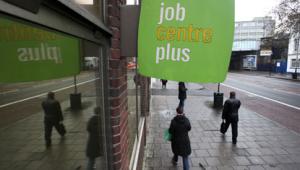Areas that have been ‘left behind’ should be the focus of the industrial strategy green paper, the charity said, in response to the consultation that ended yesterday.
The JRF said the emerging strategy needs to focus on the lagging parts of the economy, driving up productivity in low-pay sectors, meeting adult basic skills needs, and boosting struggling towns and cities.
Local Enterprise Partnership (LEP) areas such as the Greater Birmingham and Solihull and Liverpool City Region have more than a fifth of the workforce seeking work or more hours, according to the foundation’s analysis.
While some rural areas such as Greater Lincolnshire and Cumbria have high proportions of the workforce (27% and 24% respectively) trapped in low-paid or insecure work, it found.
The government’s strategy is aimed at ensuring British industry is robust post-Brexit.
Dave Innes, economist at JRF, said: “The industrial strategy is an opportunity to transform the prospects of Britain’s poorest people and places by making sure that the economy really does work for everyone. It is a welcome step to help deliver on the government’s ambition.
“To make that a reality, we need to put people and places that have missed on the country’s economic success at the heart of the industrial strategy. Almost five million adults lack basic skills, many places have not shared in the country’s record employment, while others see high numbers of workers trapped in low-paid, insecure work.”
The JRF have highlighted five priorities, helping low-paid sectors, improving basic skills of adults, working with struggling economic areas, empowering devolved regions and rebalancing national economic spending away from its Southern focus.
In addition to the JRF’s response, business leaders at the CBI called on the government to make the post-Brexit economy the most competitive in the world by 2030.
Carolyn Fairbairn, CBI director-general, said: “We must build on our leading knowledge base, drive a renaissance in our traditional heartlands of manufacturing and create a new wave of entrepreneurship by making the UK the easiest place to start and grow a business.
“By doing this we can raise productivity and improve lives in every community up and down the country.”
Business secretary Greg Clark said: “Our modern industrial strategy represents an ambitious long-term vision for the UK that will build on our strengths as a country and deliver a high-skilled economy for the years ahead.
“The green paper was the beginning of an open dialogue to develop the industrial strategy. We welcome all contributions to the consultation and will consider the findings of each response carefully.”











